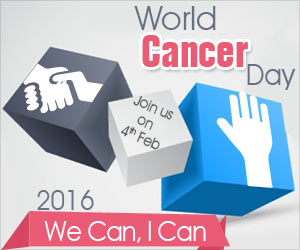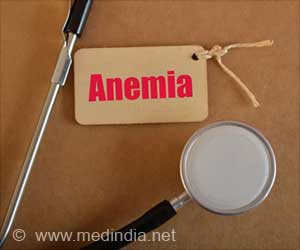World Cancer Day is celebrated on 4th February every year across the globe. It aims to create awareness about cancer and highlight the fact that the disease can now be successfully prevented and treated.
- World Cancer Day is celebrated annually on 4th February across the globe
- It generates awareness about cancer and emphasizes that effective preventive and treatment measures are now at hand
- Its major objective is to reduce the global burden of cancer
Read More..
Genesis of World Cancer Day
World Cancer Day was established on 4th February in the year 2000 at the World Summit Against Cancer for the New Millennium, which was held in Paris, France. At this Summit, six cancer leaders drafted the Charter of Paris on Cancer, which aims to promote access to quality cancer care, increase funding for cancer research, encourage greater understanding of the disease, and support cancer patients to live with dignity and respect.On 4th February 2000, the Charter of Paris on Cancer was signed by then President of France, Jacques Chirac and then Director General of UNESCO, Kōichirō Matsuura. This Paris Charter has since been adopted by numerous international cancer organizations around the globe.
World Cancer Day Theme: ‘I Am and I Will’
The World Cancer Day Theme for 2019-2021 is ‘I Am and I Will’. Therefore, 2020 marks the midway point of the ‘I Am and I Will’ Campaign, which calls-to-action the whole-hearted commitment by individuals across the world to take action now in order to have a future free from cancer.This campaign, spanning over three years, provides a unique opportunity to make a lasting impact by sustained public awareness efforts through various events and activities to inspire change.
Cancer: Facts & Figures
- Cancer can affect anyone, anytime, anywhere
- Cancer is the second leading cause of death worldwide
- 17 people die every minute from cancer worldwide
- 9.6 million people die from cancer every year worldwide
- 3.7 million lives could be saved every year by early detection and treatment
- 70 percent of cancer deaths occur in low- and middle-income countries (LMICs)
- 87 percent of cancer cases occur above the age of 50 years
- A third of all common cancers are preventable
- Total annual economic cost of cancer worldwide is USD 1.16 trillion
Ways to Get Involved in the World Cancer Day Celebrations
There are numerous ways to get involved and contribute to the celebrations, some of which are briefly highlighted below:- Organizing Events: Cancer-related events and activities, such as cancer screening camps, popular talks, and sponsored fun-runs to raise funds can be organized to create awareness about cancer
- Distributing Campaign Materials: World Cancer Day campaign materials, such as posters, banners, pamphlets, infographics, and factsheets can be distributed to generate cancer awareness among the general public
- Lighting-Up Landmarks: Prominent landmarks, monuments and buildings can be lit-up in ‘Orange & ‘Blue’ – the awareness colors for World Cancer Day. This year, Niagara Falls, Geneva’s Jet d’eau, and Stockholm’s Kaknäs TV Tower are being lit-up
- Posting on Social Media: Customized social media posts can be created by cancer survivors to convey personal stories, experiences, and challenges faced in their battle against cancer
- Advocating for Cancer: Local political leaders can be contacted to encourage them to show their support and commitment, raise public awareness, develop policies, and take affirmative action that benefits cancer patients
- Spreading the Word: Writing cancer-related articles in newspapers, newsletters, personal websites and blogs, as well as posting video messages on social media sites such as YouTube are effective ways of spreading the message
- Wearing ‘Orange & Blue’: Wearing ‘Orange & Blue’ colored awareness ribbons, wrist bands, lapel pins, caps, T-shirts and other apparel will show support for cancer patients
Cancer: Key Issues & Challenges
- Myths & Misinformation: Lack of awareness and understanding about cancer often give rise to myths and misinformation
- Unhealthy Lifestyle: Over a third of all cancers are preventable such as those that arise from lifestyle and behavior, including smoking, heavy alcohol consumption, unhealthy diet, and lack of exercise, among others
- Inequity: Severe inequities exist in access to cancer services, such as life-saving cancer diagnostics and treatment. Inequity is especially prevalent among low-income groups, indigenous tribes, immigrants, and refugees
- Lack of Accountability: Lack of accountability and transparency among public health officials can lead to delays in the implementation of health programs that could benefit cancer patients
- Mental & Emotional Wellbeing: The impact of cancer goes well beyond physical health issues. It also has a dramatic impact on mental and emotional wellbeing, which are mostly neglected
- Economic Implications: Cancer has huge financial implications for patients, their families, and the health system, which negatively impacts sustainable human and economic development
- Skills Gap: There is a severe lack of trained healthcare professionals, including doctors, nurses and paramedical staff. This is a huge barrier towards delivering quality cancer care
The Way Forward
- Educating the Public: Increasing access to reliable sources of knowledge about cancer can enlighten and empower people and help dispel the myths
- Changing Lifestyle: Lifestyle modification can significantly reduce the risk of cancer. Eating healthy, exercising regularly, quitting smoking, and reducing alcohol consumption are some strategies for risk reduction
- Increasing Equity: Access to early cancer detection and treatment services should be made available to all, irrespective of gender, ethnicity, income, social standing, or education level
- Ensuring Accountability: Ensuring accountability for any delays on the part of program officers who implement policies at the grassroots level, will streamline the implementation of public health programs in a timely manner
- Addressing Mental & Emotional Health Issues: Mental and emotional health issues should be taken into consideration while formulating strategies for the treatment of cancer patients
- Boosting the Economy: Saving lives by early cancer detection can save huge amounts of money for the health system in the long-run. This can significantly boost the economy of the nation
- Reducing the Skills Gap: Changes in medical education policies will generate more qualified doctors and nurses, which will help to reduce the skills gap and promote better healthcare delivery
References:
- World Cancer Day: 4 February - (https://www.worldcancerday.org/)
- Cancer: World Cancer Day - (https://www.who.int/cancer/world-cancer-day/en/)
- World Cancer Day 2020 - (https://www.uicc.org/events/world-cancer-day-2020)
Source-Medindia
















